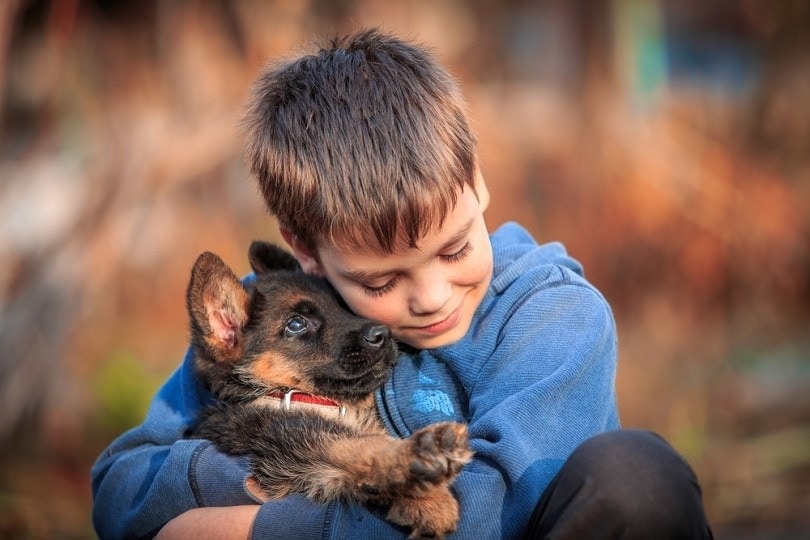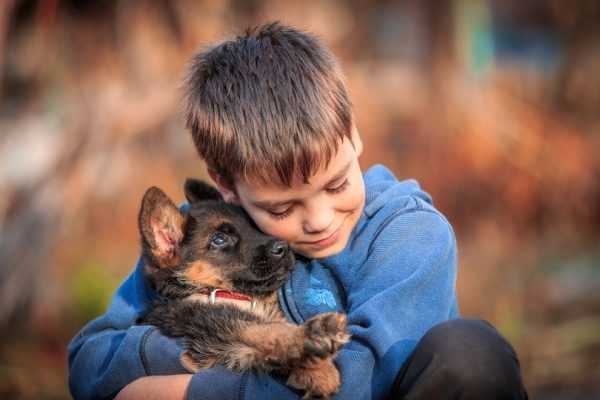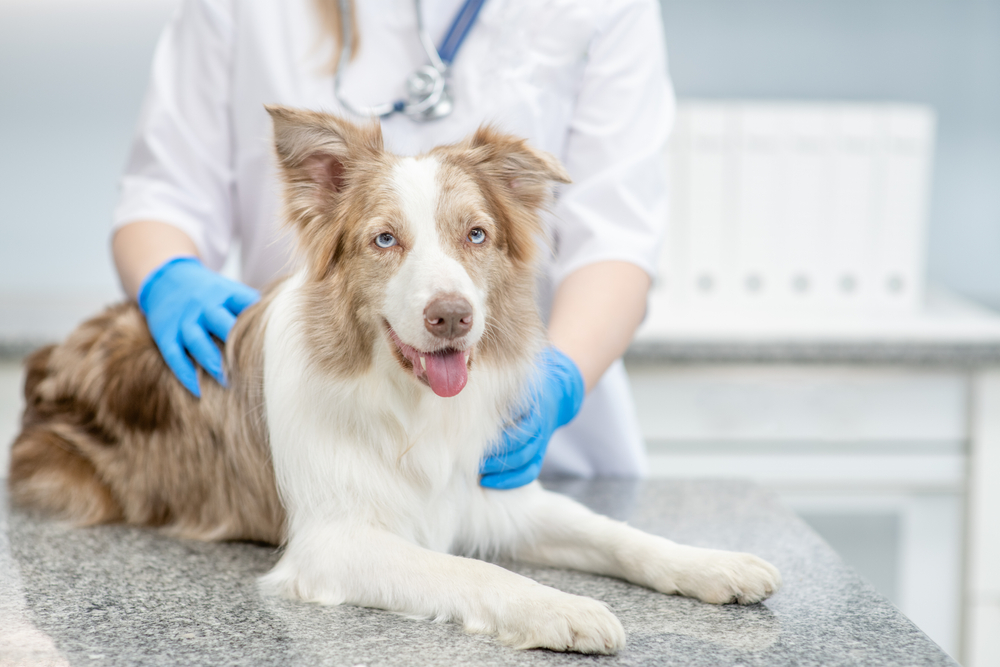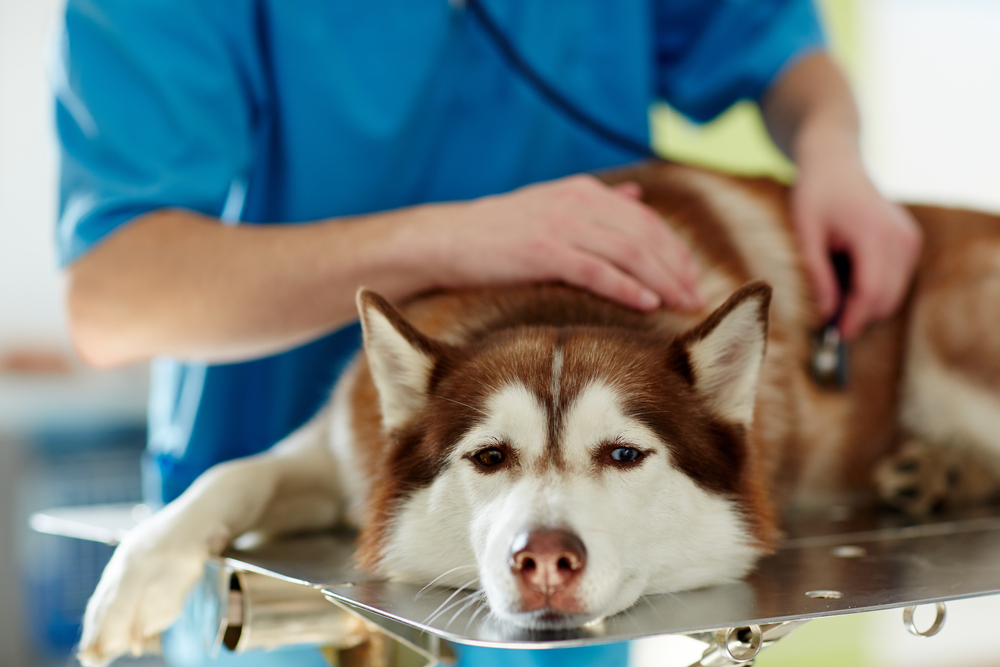Click to Skip Ahead
Dogs and children share a special bond, one that is mutually beneficial. Kids tend to feel safe around dogs, and they often have a positive effect on the animal’s behavior. The opposite is also true: Having a dog around can help keep children grounded, improve their social skills, and even help them with their physical and emotional development. In short, there are plenty of benefits that come from having dogs and kids grow up together.
If you’re a parent who is thinking about getting a pet for your child or if you’re simply interested in why it’s so universally recognized that dogs and kids get along so well, read on to find out more about the benefits of dogs and children growing up together and which breeds are best for kids.

The 7 Benefits of Dogs and Children Growing Up Together
1. Teaching of Responsibility
The simple act of feeding the dog every day will teach your child about responsibility. But that’s just the start. Once your child has a dog, they’ll learn what it means to truly care for another living thing. They’ll learn the importance of daily rituals, like walking and feeding.
They’ll get a chance to observe the changes in their dog as they age. As your child gets older, walking the dog will be a great way for the children to get out of the house and form new social connections. For example, when they’re at the dog park, they may have an easy icebreaker to start up conversations with other kids.
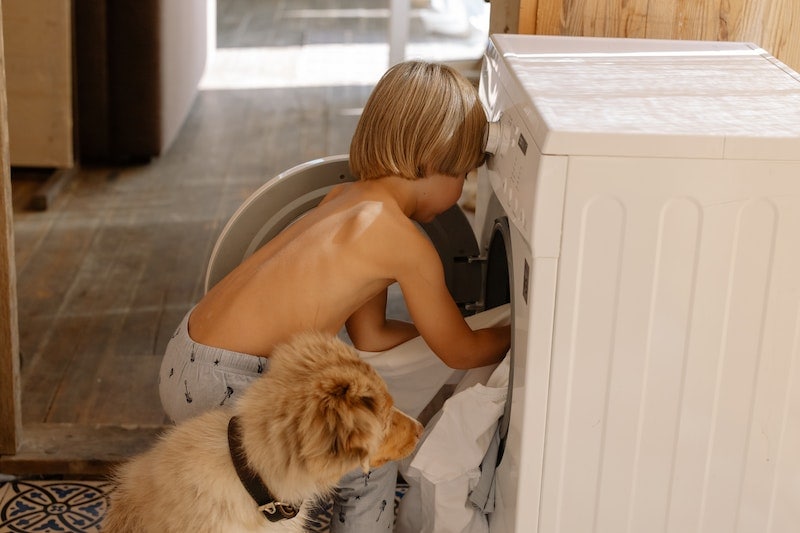
2. Social Skills and Emotional Support
Dogs are extremely good at reading human body language, which makes them great for children who have social challenges. If your child struggles with reading facial expressions or if they have trouble talking to other children, a dog may help. Dogs will react to your child in the same way they’d react to an adult. If your child gets excited, the dog will get excited too. If they’re sad, the dog will notice and try to comfort them.
Many children with special needs find that dogs are better companions than humans. They can be more understanding, and they don’t get offended if the child says something that isn’t polite. What’s more, having a dog around to provide emotional support can do wonders for a child who is anxious or depressed. Having a pet has been proven to lower blood pressure and reduce stress hormones.
3. Physical and Mental Development
Believe it or not, dogs are great for your child’s physical development, helping them to get daily exercise, thus helping to build muscle and improve balance. Having a dog around can help your child become more active in so many different ways. It can also open up the opportunity for your child to interact with other people.
For example, your dog will need to visit the vet at some point, which means your child may get the chance to interact with other children who are there with their own dogs. You can also arrange playdates with other families who have dogs. It can also help your child learn to navigate challenging situations like vet visits and walks.
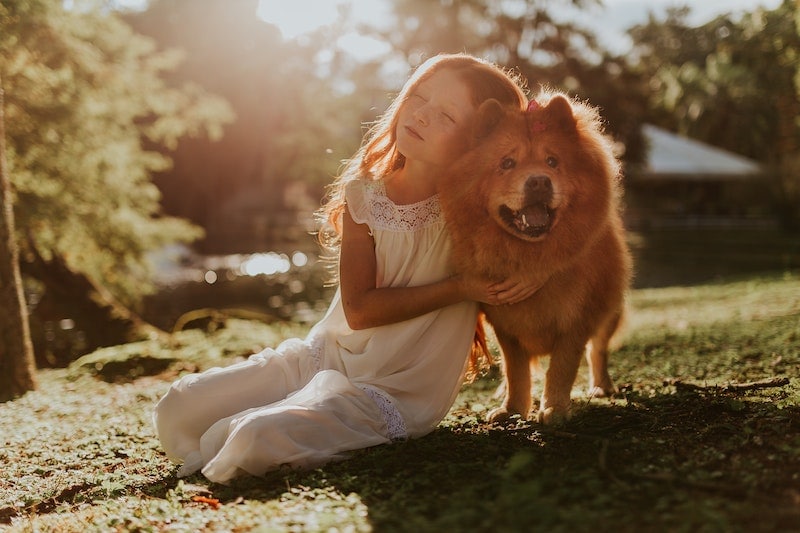
4. Protection and Care
Dogs are notoriously protective of babies and young children. There are many stories (and YouTube videos) about hero dogs that save babies from danger, such as intruders and impending home disasters. Dogs seem to be the loyal guardians of children, instinctively letting their protective nature rule when it comes to them. It’s almost as if the dog sees them as little puppies that need constant looking after and protection.
5. Anxiety Support
Dogs can have specific benefits for children who suffer from anxiety. Having a dog around can help a child who is anxious experience a reduced amount of fear and anxiety. An emotional support dog can help your child feel safer and more confident when they’re out and about or at home.
They can be great companions for kids who shy away from unfamiliar people. They’re also great for young children who suffer from separation anxiety or older kids who are too shy to talk to new people. Having a dog around can help keep a child’s anxiety levels down. Dogs are extremely devoted animals, and they’re happiest when they’re close to their owner and doing something to please them.
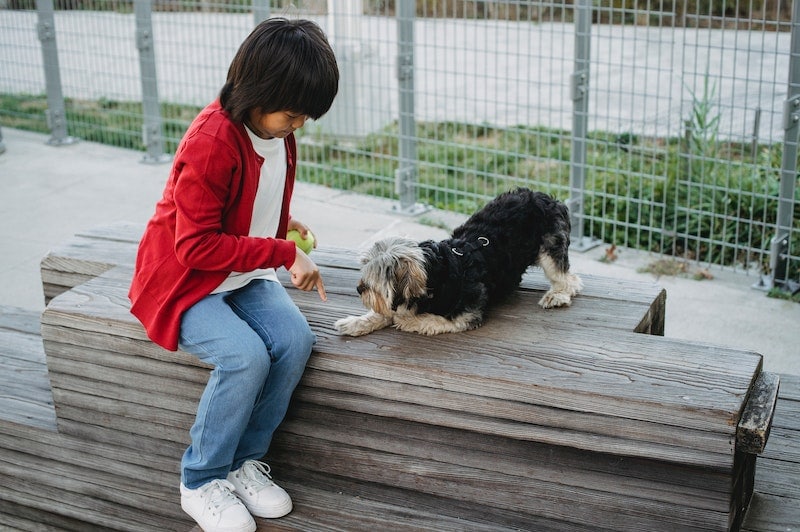
6. Constant Companionship
Childhood can be more difficult for some children than others, and a pet can be a constant companion throughout all the trials and tribulations. Kids can often find comfort in dogs, even when they are learning difficult lessons. Children can always look to their dog when they feel down, confused, or scared.
7. Potentially Fewer Allergy Issues
Research has shown that babies who are raised with pets have a lower incidence of getting sick in the first year. This means they visit the doctor fewer times for allergy-related issues than babies not exposed to dogs. What happens is that the baby’s immune system development is improved by being exposed to pet dander and various microbes brought in from the outside.
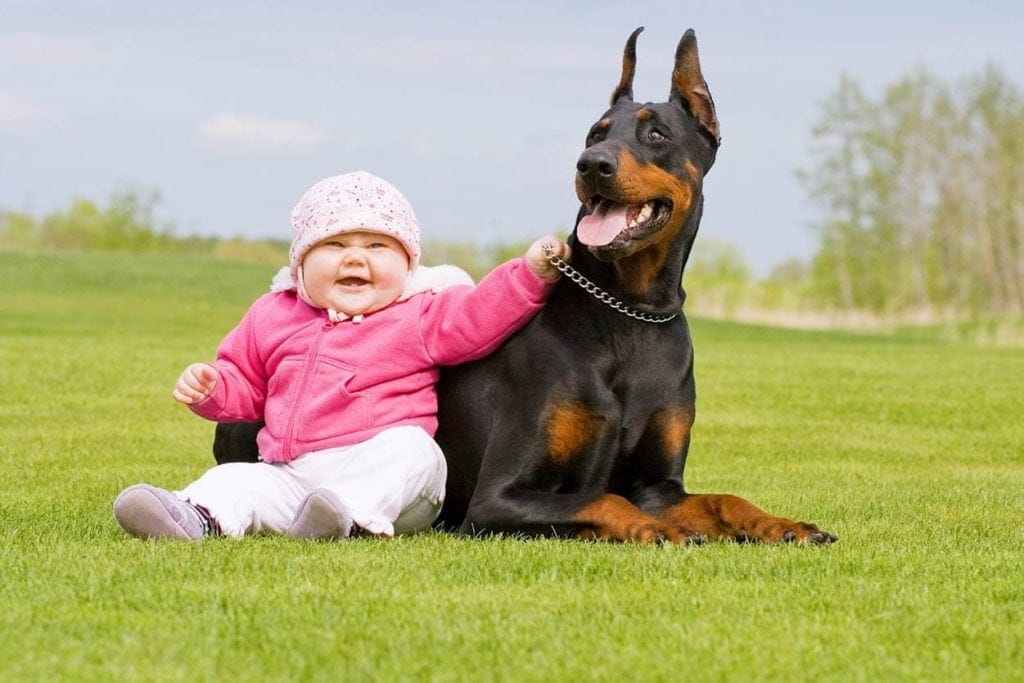
The 6 Best Dog Breeds for Children
While there are a number of great breeds for kids out there, choosing the right one can be tricky because every child is different. Since every kid is unique, what appeals to one child may not have the same effect on another. Let’s look at the most common breeds of dogs that tend to appeal to and respond well to children, so you can be better informed when making your decision.
1. Labrador Retriever
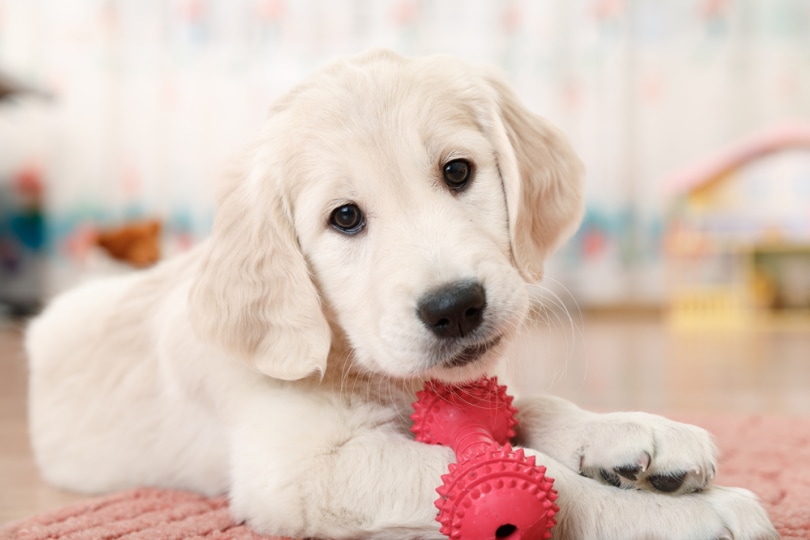
The Labrador Retriever is a common breed that appeals to many children. As one of the top breeds for kids, they are known to be energetic, friendly, loyal, and easy to train.
A Lab’s energy level is generally high enough to keep kids of all ages entertained, but it’s not so high that it becomes a problem for the whole family. Plus, these dogs are known for their gentle nature and friendly temperament, making them a great choice for families with children of all ages.
2. Golden Retriever
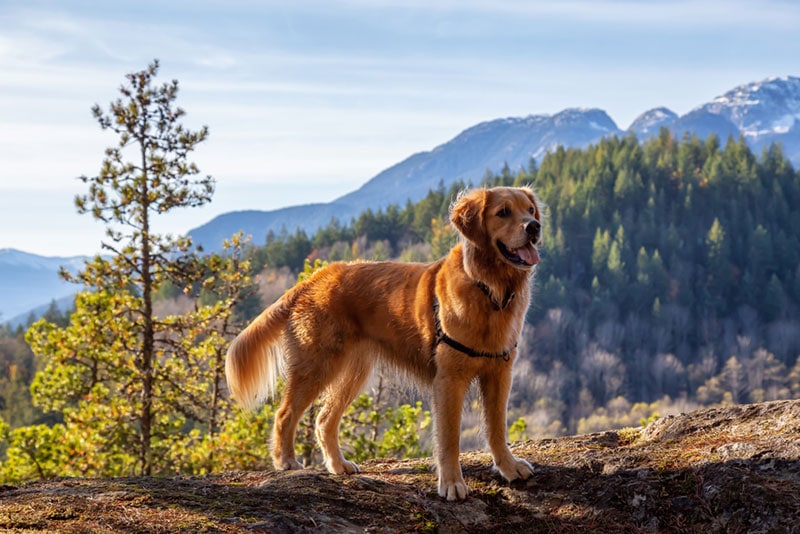
Golden Retrievers are popular family dogs that tend to be appealing to children. They are known for being friendly, energetic, loyal, and eager to please. This breed makes a good family dog because they are patient and good with kids of all ages. They can easily handle a young child’s rough play and are not easily distracted. They’re also easy to train and enjoy being part of a family.
3. German Shepherd
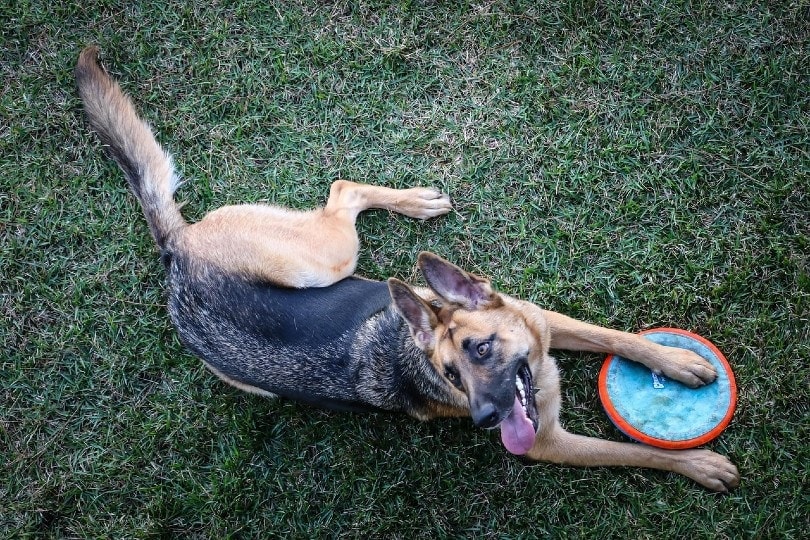
The German Shepherd is considered one of the best breeds for kids because they are patient, protective, and eager to please. Shepherds are known for being excellent guard dogs, but they also make great family pets.
German Shepherds are patient, obedient, and eager to please, which makes them an ideal choice for families with children who are just learning how to train dogs. They’re also protective, and although they are not likely to attack (unless trained to do so), they will sound a good bark alarm if they sense potential danger.
4. Siberian Husky
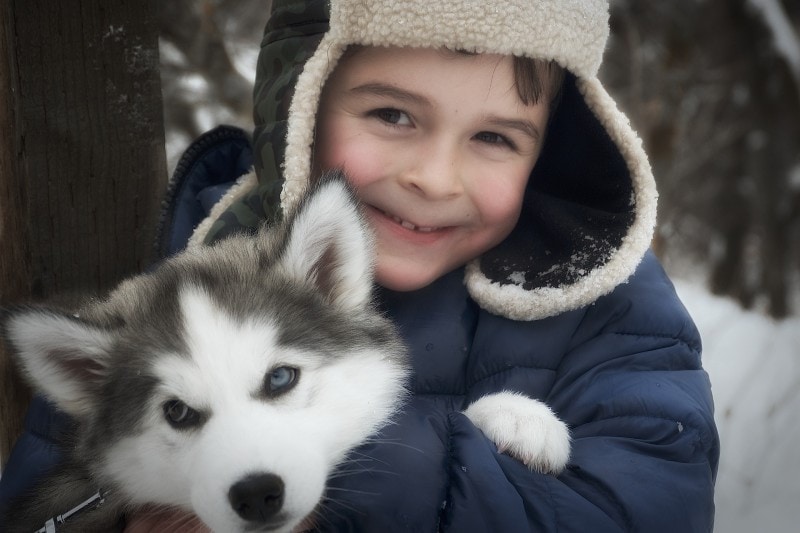
The Siberian Husky is a good breed that is appealing to many children. Huskies are known for their friendly and playful temperament. They also love to play and are ideal for families with children who have the energy to keep up with them.
Siberian Huskies are great family dogs that are generally patient with children. Don’t be surprised if you see your young kids trying to imitate their howl!
5. Boxer
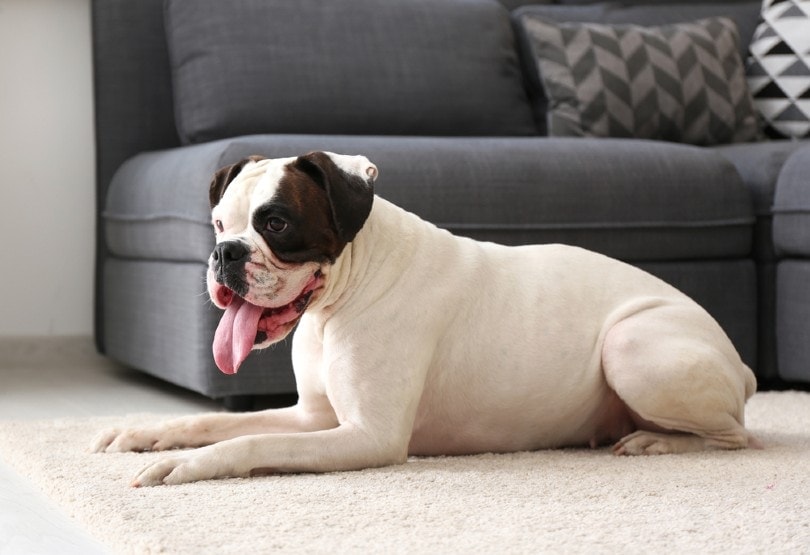
Boxers are active and playful dogs that are appealing to many people. They are eager to please and generally friendly, making them a great choice for families with children. They’re energetic but not overly hyper, which is good for kids who need to burn off extra energy.
The Boxer is also patient, even with young and small children. They are fiercely loyal and enjoy being part of a family. Boxers are great dogs that are generally good with kids of all ages.
6. Poodle
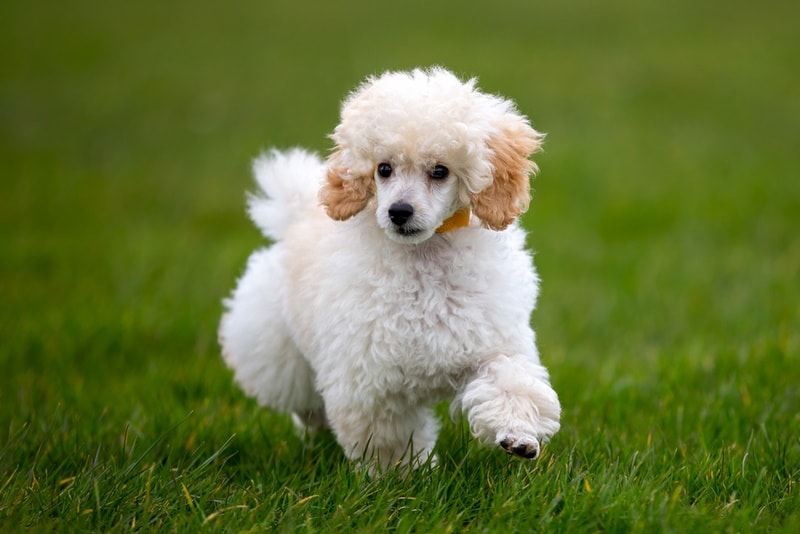
The Poodle is one of the top breeds for kids because they are playful, energetic, and patient with children. The Toy version is also small enough for children to handle and play with without accidentally getting harmed. Poodles are generally known as gentle dogs, which makes them a great choice for families with young kids.
Overall, they are active dogs that love to play, making them perfect for children who need to burn off extra energy—something most parents will appreciate. Poodles are generally intelligent and easy to train and are known for being excellent swimmers.

Wrapping Things Up
Owning a dog can benefit your child in many ways, both now and in the future. Dogs can help build a child’s social skills and ease anxiety, especially among kids with special needs. Dogs and children simply seem to have a special bond.
These loving animals are great for kids of all ages, come in many different breeds and sizes, and are great for both large and small homes. Just remember that they need attention, structure, and training just like humans do, and it’s important to teach your children how to safely interact with dogs.
Featured Image Credit: Stone36, Shutterstock

